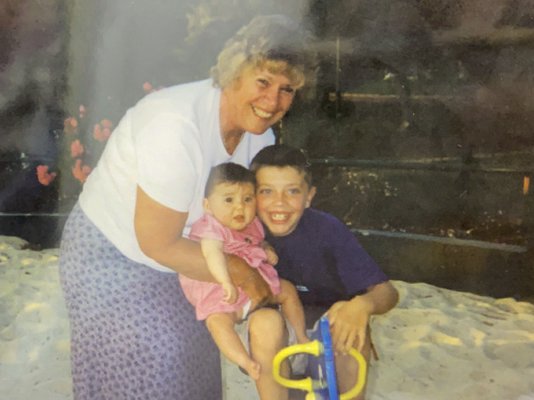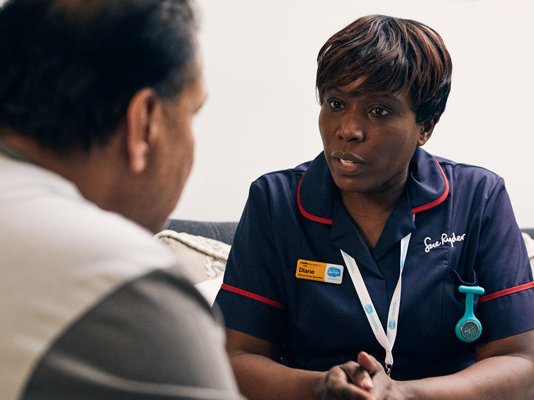
News and blog
All of the latest news and blogs from Sue Ryder, where you'll find healthcare, fundraising, policy and volunteering stories from across the charity.
For journalist or media enquiries, please contact our press office.
Showing 224 news articles

Walking
through
grief
and
finding
new
beginnings:
Finley’s
story
Finley embarked on the 1,300-mile trek in memory of a close family friend Elliot in June 2025, raising £3,645 for Sue Ryder. Just nineteen days in, a chance encounter has proved to be life-changing in more ways than one.
Grief personal stories
18 Feb 2026

Love
after
loss
-
dating
and
reconnecting
after
the
death
of
a
partner
This month of love, Sue Ryder is encouraging more open and compassionate conversations about love and intimacy after bereavement.
Grief and bereavement
13 Feb 2026

We
have
a
problem
with
palliative
and
end-of-life
care,
but
it's
not
all
about
money
and
beds
Our Chief Executive, James Sanderson, shares thoughts on the recent coverage of palliative and end-of-life care in the UK, the broader conversation about the value of this care and how the sector can adapt.
End-of-life care
12 Feb 2026

Sue
Ryder
and
Heidi
bring
clinical
AI
into
hospice
care
We are pleased to announce a five-year partnership with Heidi, an AI-powered medical scribe company, to bring clinical AI into Sue Ryder community services and hospices, freeing clinicians to spend more time with patients and families.
End-of-life care
12 Feb 2026

Sue
Ryder
welcomes
CQC
apology
and
upgrade
to
hospice
rating
Sue Ryder welcomes the news that the Care Quality Commission (CQC) has upgraded its care rating for Sue Ryder Wheatfields Hospice. This follows the charity’s request for a review of the rating, based on a combination of inaccurate and unbalanced findings.
End-of-life care
11 Feb 2026

Living
a
full
and
meaningful
life
after
loss:
Ellen’s
story
Ellen is determined to live a full and meaningful life to honour those she has ‘loved and lost’. At 23, she hopes that sharing her story will help other young people in similar situations.
Grief personal stories
05 Feb 2026

Assisted
Dying
and
the
Case
for
Better
Palliative
Care
As the assisted dying debate continues, we must define a national minimum standard for palliative care so everyone in the UK can access the same quality of end-of-life support.
End-of-life care
13 Jan 2026

Sue
Ryder
launches
new
NHS
palliative
care
services
across
Berkshire
West
Sue Ryder’s new services mean more people can access expert care at home, in the community, or in hospice or community hospital beds.
End-of-life care
02 Jan 2026

New
right
to
bereavement
leave
passed
by
Parliament
The Employment Rights Bill is now set to become law, having completed all its stages in Parliament.
Grief and bereavement
17 Dec 2025

Local
hospices
and
NHS
launch
contact
number
helping
anyone
receiving
palliative
care
to
live
well
Local hospices and the NHS have joined forces to launch one NHS 111 contact number, helping anyone receiving palliative care to live well.
End-of-life care
01 Dec 2025
